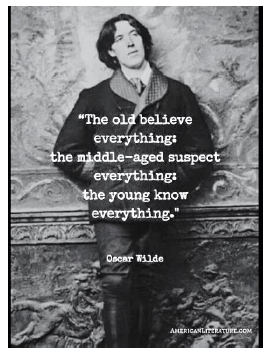Leia o texto para responder à questão.
The challenge of doctor-patient relations in the internet age
“Let me do some research and I’ll get back to you,” my
patient said. My patient, a 19-year-old student, had already
taken time off from school because of her anxiety. I was her
psychiatrist, with over two decades of experience treating
university students, and had just explained my diagnostic
impressions based on a lengthy evaluation. I’d recommended
that she try a medicine I expected would help. I’d also laid out
the risks and benefits of other treatment options.
“Do you have additional questions I can answer?” I asked.
I wanted to let her know that’s why I was there, to cull the
research, to help make sense of it. “No, I like to go online and
look for myself,” she said.
More and more, I see students turning away from the
expertise that a live person can offer and instead turning to
the vast and somehow more objective-seeming “expertise” of
the digital world.
In an age when journalism we don’t like can be dismissed
as “fake news,” suggesting that the information we do like
is most credible, regardless of its source, it’s not hard to
understand why young people do this. The medical profession
itself, under managed care, has played a role as well, providing
less time for doctor-patient interactions and undermining the
chances that a personal relationship and trust can develop.
Under the guise of efficiency, medical test results are now
often released directly to patients, sometimes before or even
without the benefit of any interpretation.
But there’s danger in trusting data over people, as there
is in thinking the expertise of all people is equivalent. When
it comes to health, digital natives may not be learning how to
navigate effectively. And the consequences could be harmful.
The availability of health data on the internet has its
benefits. Online, for example, we can find explanations and
solutions for symptoms we might be too embarrassed, or
afraid, to discuss with another person, in person. Or, for lifethreatening diseases, we can locate clinical trials our doctors
may not be aware of.
However, there’s also a lot of misleading information, and
information that’s simply untrue. The internet is full of people
selling things – supplements, treatment regimens that have
not been rigorously tested, even prescription medications –
and making false promises that have not been scrutinized
by regulatory agencies. Sometimes, as in the case of some
websites that promote “an anorexic diet” for “aggressive”
weight loss, the information can encourage life-threatening
behavior.
Years ago, when we discussed paternalism versus patient
autonomy in my medical school ethics class, I came down
strongly in favor of autonomy. Who but the patient could best
decide what was right for him or her? But years of clinical –
and personal – experience have taught me that information
in and of itself is insufficient. Judgment is also indispensable,
especially in complex situations, and the capacity for good
judgment rests within people, not data sets.
(Doris Iarovici is a psychiatrist at Harvard University’s Counseling and
Mental Health Services and the author of Mental Health Issues and the
University Student. www.nytimes.com, 01.03.2018. Adaptado.)




